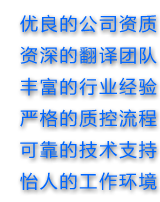青岛翻译机构推荐:9个历史悠久的英语“新词”:1917就有OMG了
Here are nine words that you might think are recent additions to the language, but have actually been spoken and written。 如下九个词也许你会以为是英语语言的新词,其实很早就开始有人说有人写了。 X factor (1930) 未知因素(1930) The TV show didn’t invent the phrase, of course, but what you might not expect is how long people have been talking about the X factor (‘an indefinable but important element’)。 It’s found as far back as 1930, appearing in the New York Times。 电视节目并没有发明这个词,但你也许想不到人们谈论X factor (“无法定义却重要的元素”)已有多久。最早是在1930年,出现在《纽约时报》上。 Celebrity (1849) 名人(1849) The word celebrity was actually around several centuries ago, meaning a ceremony, or the observance of a ceremony – but in its most common current sense (a famous or talked-about person) it’s still not very new: people have been called celebrities since the mid-19th century。 “名人”这个词几百年前就有了,意为“仪式”或“观摩仪式”,但现在最常用的这层意思(“出名“或”引发议论的人”)亦相当久远,自19世纪中期就有名人一说。 Wassup (1902) 近来如何?(1902) Made famous by a Budweiser commercial in the late 90s and early 2000s, wassup (or whassup) as a colloquial pronunciation of what’s up has written evidence from around a century earlier, in a 1902 novel by Arthur Morrison。 上世纪90年代末和21世纪初因百威啤酒的广告而走红,有关wassup(也拼作whassup)是what’s up(你好吗)的口语发音,一百多年前 ,1902年阿瑟·莫里森的小说里就有书面记载。 Holla (1523) 喂喂(1523) Holla, as an interjection, is popular in some circles today – but you’d also have been understood back in the 16th century, where holla was used as an exclamation meaning ‘stop’ or, as seen in Love’s Labour’s Lost, a shout to excite attention。 “喂喂”作为感叹,在现在有些圈子里很流行,但你也应知道,早在16世纪,holla(叫“喂”,大声说)就用作感叹,意为“停下”,在《爱的徒劳》中也作为喊叫,意在吸引注意力。 OMG (1917) 我的天(1917) Standing for , and used to express astonishment, this initialism predates textspeak by many decades。 It is first found, indeed, in a letter to Prime Minister Winston Churchill from 1917。 代表“Oh my God(我的上帝啊)”,用来表达震惊,这三个字母缩写要比短信用语早好几十年。说真的,最初发现是1917年写给丘吉尔首相的一封信中。 Xmas (1551) (圣诞)(1551) The earliest use of this abbreviation for Christmas should stem any concerns about falling standards of English : it dates back as far as the mid-16th century。 The X represents the first letter (‘chi’) of the Greek Khristos, ‘Christ’。 可以打消掉英语标准在降低的顾虑了,最初使用这一缩写来简化Christmas要追溯到16世纪中叶。X代表希腊语Khristos第一个字母(‘chi’),即‘Christ’(基督)。 Spork (1909) 餐叉(1909) A handy tool, particularly if packing lightly for a picnic, the spork isn’t a latter-day invention。 Indeed, the term dates back over a century, as far as 1909。 方便实用的工具,尤其对于野餐想轻装出行时更是如此。餐叉不是什么现代发明。事实上,这一术语可以追溯到一百年前早在1909年的时候。 Hairdryer (1895) 电吹风(1895) The process of getting ready in the morning is no 21st-century invention。 You might be surprised to learn that the term hair-dryer was first used as early as 1895, according to current research, with hair straightener following three years later。 早晨准备就绪不是什么21世纪的发明。你定会惊讶,hair-dryer(电吹风)这个词最初在1895年就有人使用了,据最新研究称,三年后有了hair straightener(直发器)一词。 Bezzie (1865) 闺蜜好友(1865) If you call your best friend your bezzie mate, don’t worry that you’re using modern slang: the earliest bezzie has been found is right back in 1865。 如果你称你最好的朋友bezzie mate(闺蜜),不用担心你在用现代俚语,早在1865年就有人这么用了。

随机文章













